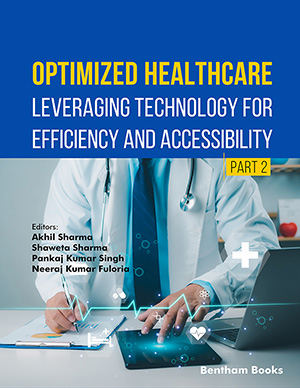Introduction
ISBN: 979-8-89881-160-0eISBN: 979-8-89881-159-4 (Online)
Optimized Healthcare: Leveraging Technology for Efficiency and Accessibility (Part 2) expands the exploration of transformative healthcare innovations by focusing on mobile health (mHealth), hospital management systems, health information exchange, robotics, telehealth, financial technologies, and workforce training. This volume emphasizes how these advancements work together to improve healthcare accessibility, streamline operations, and ensure sustainability in diverse healthcare settings.
Beginning with the rise of mobile health technologies, the book details their role in overcoming geographic barriers, empowering patients, and delivering precision-driven, personalized care. It then examines the optimization of hospital management systems through AI, IoT, cloud computing, and blockchain, highlighting tools for efficiency in patient care, supply chains, financial management, and interoperability. Additional chapters detail health information exchange (HIE) for seamless data sharing, robotics and automation in surgical and caregiving contexts, and the expanding role of telehealth in rural and underserved communities.
Key Features:
- - In-depth coverage of mHealth, telehealth, robotics, and financial technologies in healthcare.
- - Practical insights into optimizing hospital management and seamless data exchange.
- - Real-world case studies on technology adoption in diverse global healthcare systems.
- - Focuses on accessibility, patient-centered care, and financial sustainability.
- - Guides on workforce training for effective digital health integration.
Readership:
An essential resource for healthcare professionals, administrators, policymakers, biomedical engineers, researchers, and postgraduate students seeking to understand how digital tools can enhance efficiency, equity, and sustainability in healthcare delivery.

